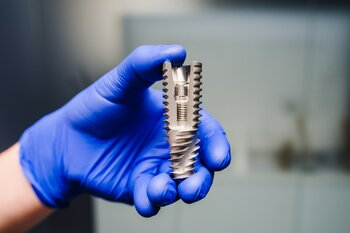Introduction
Full-mouth dental implants have become an increasingly popular solution for individuals in Australia seeking a durable and natural-looking replacement for missing or damaged teeth. Unlike traditional dentures, these implants offer a more permanent and functional alternative, providing aesthetic appeal and the ability to eat, speak, and confidently smile.
As the demand for this revolutionary dental procedure grows, understanding the costs involved has become essential for prospective patients. The price of full-mouth dental implants can vary widely, depending on factors such as the number of implants required, the materials used, and the complexity of the procedure.
This comprehensive guide will explore the various components contributing to the cost of full-mouth dental implants in Australia. From the benefits and advantages to a detailed breakdown of potential expenses, we’ll provide insights to help you make an informed decision about this significant investment in your oral health. Whether you’re considering the procedure or simply curious about the costs, this guide offers valuable information to assist you on your journey to a renewed smile. Learn more information.
Why Opt for Full Mouth Dental Implants?
The decision to replace missing or damaged teeth goes beyond aesthetics—a choice that can significantly influence one’s quality of life. With various dental solutions available, full-mouth dental implants have risen to prominence, offering unmatched benefits that often overshadow other alternatives. Let’s delve into the advantages of this modern dental solution and compare it with traditional dentures.
Benefits and Advantages:
- Durability and Longevity: Dental implants from titanium or zirconium integrate with the jawbone, ensuring they remain firmly in place. With proper care, they can last a lifetime, unlike dentures which typically require periodic replacements.
- Natural Look and Feel: Implants closely resemble natural teeth in appearance and function. They restore not only the smile but also the natural bite, allowing for comfortable chewing and speaking.
- Preservation of Jawbone: One significant benefit of dental implants is the prevention of jawbone deterioration. When teeth are lost, the jawbone can recede over time, but implants stimulate the bone, maintaining its structure.
- No Special Maintenance: Dental implants can be treated just like natural teeth—regular brushing, flossing, and dental check-ups are all needed. There’s no requirement for special adhesives or nightly soakings.
- Improved Self-Esteem: A complete, stable set of teeth can significantly boost confidence, eliminating any self-consciousness tied to missing teeth or slipping dentures.

Comparison with Traditional Dentures:
- Stability: Unlike dentures that may slide or slip without a perfect fit or adhesive, dental implants remain securely anchored to the jawbone, ensuring no embarrassing mishaps during eating or speaking.
- Comfort: Dentures can sometimes cause irritation or soreness in the gums, especially if they don’t fit perfectly. Implants, on the other hand, provide a more comfortable experience, closely mimicking natural teeth.
- Dietary Restrictions: Denture wearers often face limitations, avoiding hard or sticky foods that could displace or damage their prosthetics. With implants, such restrictions are virtually eliminated.
- Oral Health: Dental implants don’t require the grinding down of adjacent teeth, a process sometimes necessary for denture fittings. This means preserving more of your natural teeth and overall better oral health.
- Long-Term Cost Efficiency: Though the upfront cost of dental implants may be higher than dentures, the long-term savings from not needing replacements, special cleaning solutions, or adhesives can make implants a more cost-effective solution over time.
Detailed Procedure Description:
Step-by-Step Walkthrough of the Implant Process
Full-mouth dental implants offer a comprehensive solution to restore missing teeth. The procedure starts with an initial consultation where your dentist evaluates your oral health and plans the surgery. Next, any damaged or decayed teeth are extracted, and if necessary, a bone graft is performed to ensure sufficient jawbone support for the implants. After a healing period of several months, the actual implant, a titanium post, is surgically placed into the jawbone. Over the next few months, the implant fuses with the bone in osseointegration. Once this is achieved, an abutment is attached to the implant, and finally, the prosthetic tooth or teeth (often a dental bridge or dentures) are fixed in place.
Recovery Timeline and Post-Surgery Expectations
Immediately after the surgery, patients might experience some discomfort, swelling, and minor bleeding. Sticking to a soft diet and avoiding strenuous activity for a few days is essential. Pain can be managed with over-the-counter pain relievers or the dentist’s prescription. After about a week, most patients can resume regular activities. However, it takes a few months for the implant to fully integrate with the bone, during which routine dental check-ups are crucial. Dental implants can last a lifetime with proper care, providing a durable and natural solution for missing teeth.
Factors Affecting the Cost of Full Mouth Dental Implants in Australia
Given the multiple variables in play, navigating the landscape of dental implant costs can sometimes feel challenging. In Australia, several key determinants directly influence the price of this intricate dental procedure:
- Implant Count: The total expense is naturally influenced by how many implants you require. For instance, replacing more teeth means more implants, leading to higher costs.
- Implant Composition: Different materials like titanium or zirconium come with distinct price tags. The choice of material can sway the overall expenditure.
- Surgical Intricacy: Not all implant procedures are created equal. The more complex the surgery, perhaps due to unique dental anatomy or the need for bone grafting, the higher the potential costs.
- Local and Market Trends: Just as property prices vary by suburb, so does dental implants cost. Cities might have different pricing structures than rural areas, and local market dynamics also play a role.
Average Cost of Full Mouth Dental Implants

Understanding the average cost of full-mouth dental implants is essential for anyone considering this transformative procedure. Here’s an overview:
Breakdown of Cost Components:
Consultation: Typically includes an examination, X-rays, and a treatment plan. Prices may start from $100.
Surgery: The bulk of the cost, starting from $15,000, depends on factors previously mentioned, like complexity and materials.
Post-Op Care: This may include follow-up visits, medications, and any necessary adjustments, adding approximately $1,000.
Comparison with Other Countries:
United States: The cost in the U.S. can start from $20,000.
United Kingdom: In the U.K., expect to pay around $25,000.
India: Lower labour and material costs can result in prices as low as $8,000.
Overall, Australia’s average cost is competitive globally, with a strong emphasis on quality and adherence to rigorous health standards.
Potential Additional Expenditures
While the primary costs of full-mouth dental implants are generally straightforward, there are potential auxiliary expenses to be aware of. Here’s a breakdown:
- Bone Grafting: Some patients lack the necessary bone mass for implants. Bone grafting might be required in such cases, adding to the total cost.
- Tooth Extraction: If remnants of damaged teeth are present, they must be professionally extracted before the implant, leading to an added charge.
- Sedation or Anaesthesia: Depending on the complexity of the procedure and the patient’s comfort level, varying levels of sedation or anaesthesia might be employed, each with its associated cost.
- Post-Op Medications and Care: The recovery phase might necessitate specific medications, dressings, or special oral care products, which can further contribute to the overall expense.
Ways to Finance Your Dental Implants
Dental Insurance Insights: Many dental insurance plans offer partial coverage for implant procedures. It’s essential to discuss with your provider to understand the specifics of what’s included and the potential out-of-pocket expenses.
Payment and Financing Alternatives: Numerous dental clinics provide flexible payment plans or tie-ups with third-party financing companies. These can be especially helpful in distributing the costs over an extended period.
Technological Advancements in Dental Implants:
Latest Technologies and Tools in Implant Procedures
The world of dental implants has seen remarkable advancements over recent years, with technology playing a pivotal role in refining procedures. One standout innovation is 3D imaging and Cone Beam Computed Tomography (CBCT). This technology offers high-resolution, three-dimensional images, allowing dentists to plan surgeries precisely. Digital impressions, replacing the traditionally uncomfortable mould-taking process, are now obtained using intraoral scanners, ensuring a more accurate and patient-friendly experience.
Another groundbreaking tool is the use of computer-guided implant surgery. This provides:
- A virtual simulation of dental implant surgery.
- Permitting dentists to assess the best implant position and angle before the procedure.
- Minimising risks.
Enhancing Precision and Patient Experience
These technological strides have revolutionised the precision with which dental implants are placed and considerably enhanced patient experience. With 3D imaging, patients are spared multiple X-rays, reducing radiation exposure. The discomfort of traditional dental moulds is bypassed entirely with digital impressions. Moreover, the predictability introduced by computer-guided surgeries translates to faster recovery times and reduced postoperative discomfort. The overarching theme of these advancements is a marriage of heightened accuracy with optimal patient comfort, marking a new era in dental implantology.
Aftercare and Maintenance of Dental Implants

Post-Surgery Implant Care
After undergoing a dental implant procedure, adhering to proper aftercare is paramount. Initially, patients should refrain from disturbing the surgical site, which means no touching, rinsing, or spitting vigorously. For the first 24 hours, it’s advisable to use cold packs to manage any swelling, applied in 20-minute intervals.
Pain can usually be managed with over-the-counter pain relievers. Soft foods are recommended in the early days post-surgery to avoid exerting pressure on the implant site. Gradually, as healing progresses, one can reintroduce harder foods.
Ensuring the Longevity of Your Implants
A combination of regular professional care and a rigorous at-home oral hygiene routine is essential for the implant’s longevity. Daily brushing and flossing are imperative, with a non-abrasive toothpaste to prevent scratching the implant’s surface. At least twice a year, periodic professional cleanings are crucial to monitor the implant’s health and promptly tackle any emerging issues.
Additionally, using a water flosser can be beneficial, especially for hard-to-reach areas. It’s also prudent to avoid habits compromising the implant, such as chewing on hard items like ice or pens.
Addressing Potential Risks in Dental Implants at Infinity Dental Care
Risks and Considerations
Like any surgical procedure, dental implantation is not devoid of potential risks. Some complications might include infection at the implant site, injury to surrounding structures, nerve damage resulting in pain or numbness, or sinus issues when implants placed in the upper jaw project into sinus cavities.
Risk Mitigation at Infinity Dental Care
At Infinity Dental Care, we prioritise patient safety above all. We’ve instituted a multi-faceted approach to minimise potential complications. Every patient undergoes a comprehensive examination, including X-rays and 3D imaging. This aids in precise implant placement, avoiding nearby structures like nerves.
Hygiene and sterilisation are paramount, with state-of-the-art equipment ensuring every tool is meticulously cleaned. Our skilled professionals undergo continuous training, ensuring they’re updated with the latest techniques and protocols to reduce risk further.
Lastly, patient education is at the forefront. By informing our patients about aftercare and signs to watch out for, we enable them to be partners in their healing journey, ensuring timely intervention if necessary.
Conclusion
While representing a significant initial investment, full-mouth dental implants pave the way for enduring oral health and improved overall well-being. Their diverse benefits, from functional prowess to aesthetic grace, underscore their profound long-term value. As with any substantial health decision, it’s paramount to derive insights from professionals adept in the field. At Infinity Dental Care, our seasoned experts are poised to guide you meticulously through the journey, ensuring your needs are addressed with precision and care. Your smile, confidence, and health deserve nothing but the best. Why wait? Contact us today at (02) 9159 6237 and embark on a transformative dental adventure tailored just for you.
Note: Any surgical or invasive procedure carries risks. Before proceeding, you should seek a second opinion from an appropriately qualified health practitioner.
References:
Dental Implants. Part I: Biological basis, implant types, and the peri-implant sulcus https://pubmed.ncbi.nlm.nih.gov/8699485/
Dental implants and how crucial replacing teeth really is https://www.dentalhealth.org/Blog/dental-implants-and-how-crucial-replacing-teeth-really-is

